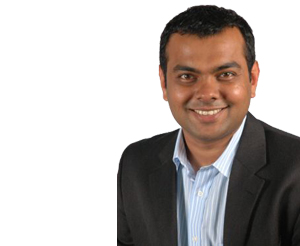
As a doctor, I watched the Satyamev Jayate episode on healthcare in India with interest and also followed the ensuing reaction from the public, as well as that from my friends and colleagues in the medical community. There was a flurry of tweets and Facebook posts from people narrating their own horror stories related to the field of healthcare. There were also reams of pages written by insulted doctors and medical students upset on being tarred by the same brush as those accused of malpractice and reckless profiteering at the cost of patients’ health.
Doctors work very hard. We also start early in life. In India, it starts as early as the age of 18 when we go straight from being high school students to men and women of medicine. And it doesn’t end. For many of us, our training lasts an intense 12–16 nominally paid years. This path is intended to produce exceptional professionals, people who embody compassion and have a deep understanding of the science and art of medicine.
Countless doctors provide free or heavily discounted care to patients, every day, across the country. They also make immense personal sacrifices to ensure that they are available to patients at all times and provide them with the best possible care. This does not usually go unrewarded; the tremendous amount of trust and respect that people still have for doctors is one clear reward. How often do you hear someone say the line, “Doctor toh bhagwan ke jaisa hota hai”? Also, once doctors start practising privately, the average income levels are much higher than what you see in most professions.
Despite this, in the last few decades there has been a huge erosion of this trust between doctors and patients. Many patients suspect that they are not being referred to the best possible doctor for their condition, but to the one who pays the most commission. They do not know how widespread or contained this (very scary) problem is, and often assume the worst. Given that medicine often involves situations of life and death, it is natural that this leads to concern and debate. We, as doctors, need to embrace this debate and lead the way in allaying these concerns. As the first step, we should come to terms with the impact that the corruption of a section of practitioners has had on all of medicine in this country. Medicine like many other professions is not immune to the corruption that is widespread in India.
Many doctors have told me about how the ‘cut system’ is like extortion and a young doctor will not be able to survive without handing out cash in envelopes to a range of other medical professionals. Many medical representatives working with pharmaceutical companies will tell you about the bribes (such as trips, gifts or even cash) that they routinely offer some doctors who not only accept them but also demand more. Many patients will tell you the story of how a doctor will throw aside the report from an expensive CT scan or an MRI that was not done at his/her preferred centre and ask the patient to repeat it.
Till date, there has been no organized response to corruption in medicine. There are lone crusaders like Dr H. S. Bawaskar, the physician from Raigad who filed a complaint with the Medical Council of India (MCI) in 2013 when a diagnostic centre sent him a commission. But the MCI and the larger medical community seems to ignore such efforts and even suppress them. In 1996, a Chennai-based nephrologist, Dr M. K. Mani filed a complaint with the MCI and even his reproduced correspondence with the diagnostic centre that had offered him a commission. It looks like the MCI had not resolved the issue when The Lancet checked in November 2013. We, as a community, need to take action and stop tolerating this rot. That is the only way in which we can live up to our duties to our patients and maintain the trust and respect garnered by generations of medical practitioners.
There are a few simple steps that all of us can take to start with
a) Refuse to give or accept commissions from or to other doctors and/or diagnostic centres.
b) Keep the patient’s interest topmost in all our decisions and the advice we give them.
c) Be honest and transparent with patients.
I run a service called MeraDoctor, where we do not take a single paisa in cuts or commissions from anyone, and instead pass the savings on to our patients who save between 30%–40% on consultations and tests. The doctors we work with are relieved to not have to deal with commissions and our patients understand the value of this. We have had thousands of families from across 19 states in the country sign up for the service. We know from the many great Indian doctors that we admire and look up to that being honest and transparent is possible. This really is our problem to fix. Let us do it now!